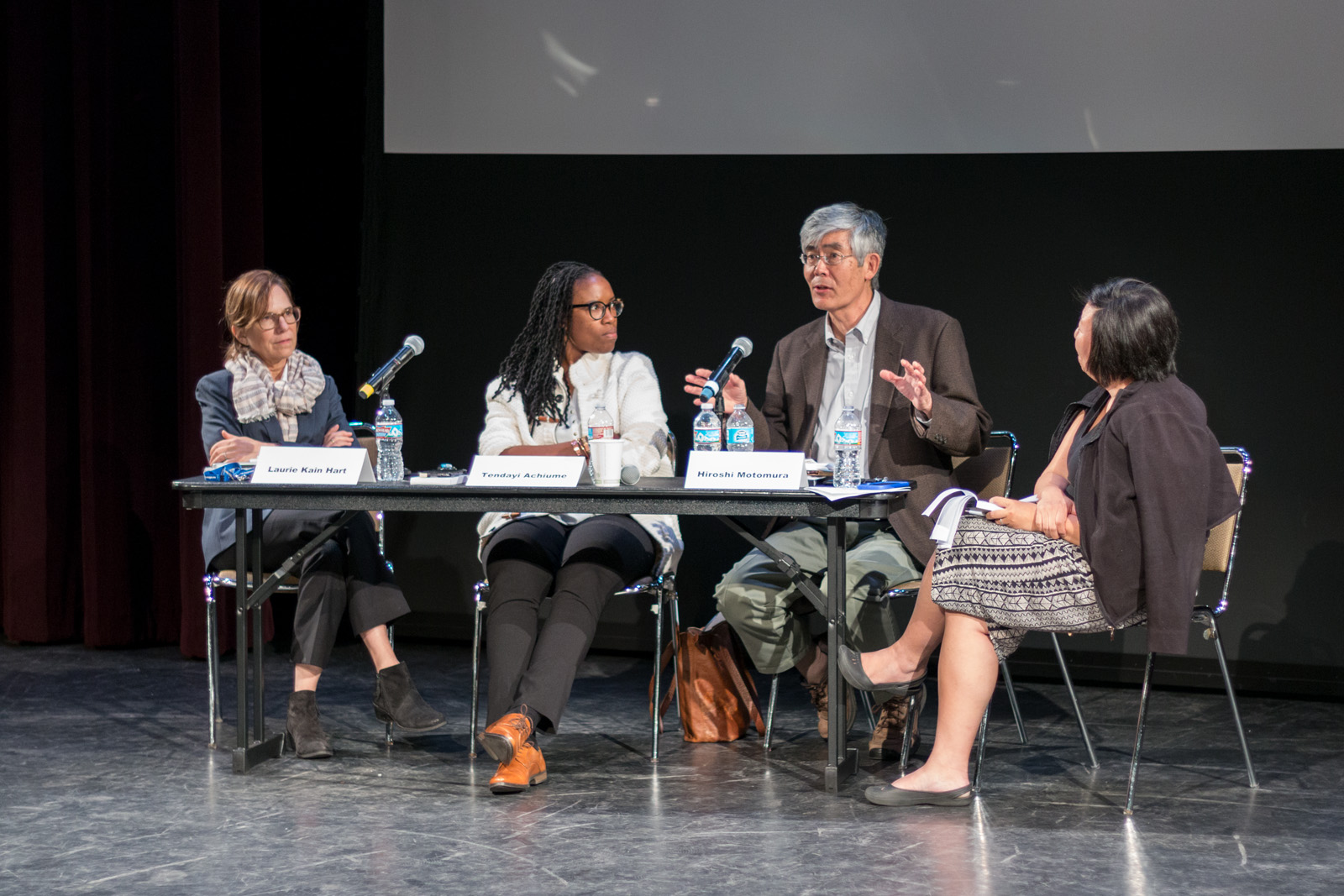CAC-hosted panel reflects on problems refugees face, current crisis

(Stella Huang/Daily Bruin)
By Sharon Zhen
Feb. 4, 2017 10:27 p.m.
Three professors discussed the recent refugee crises and the reasons behind common issues for refugees at a panel Thursday.
UCLA Residential Life and WorldFest Series hosted “Where Do We Go? A Panel on the Refugee Crisis,” to discuss the problems refugees face. Lisa Hasegawa, activist-in-residence at the Asian American Studies Center, moderated the panel.
Rachel Kuria, co-director for the WorldFest Series, which is under the undergraduate student government Cultural Affairs Commission, said she organized the event to dispel myths and open up discussion about refugees and their current situations.
“Our platform is one to humanize, listen to the voices of the marginalized and ask critical questions,” Kuria said.
At the event, Laurie Kain Hart, an anthropology professor who has done work in Greece regarding their refugee crisis, said migration is a result of long-term global inequalities. She added it can be difficult to distinguish the causes of mass migration.
“How do we tell why a Honduran migrant is leaving?” Hart said. “The conundrum of sorting out refugee and migrants is somewhat heartbreaking, because of these causes and the positions people are forced to (assume) because of these processes.”
Tendayi Achiume, a law professor, refuted arguments made against accepting refugees.
Achiume said she does not believe in arguments that the United States cannot afford to welcome refugees, because countries that are doing far less well than the United States are hosting far higher numbers of refugees. She added she thinks refugees are beneficial to the economy.
She also said statistics do not support the argument that refugees are national security threats.
“Since 2001, the U.S. had 784,000 refugees, and out of these refugees, only three have been related to something related to terrorism, and these cases aren’t related to the United States,” Achiume said. “I would argue this is xenophobia, and I think we should call it what it is.”
Achiume also explained the limitations of the legal definition for refugees. A refugee is defined by international law as a person who is forced to flee his or her country because of persecution, war, violence or discrimination. Therefore, people fleeing extreme poverty or climate change-related disasters might not meet the criteria of being considered a refugee, she said.
“The definition ‘refugee’ is both important and insufficient,” she said. “A lot of people are worthy of protection but aren’t protected.”
Hiroshi Motomura, a law professor, said the U.S. has narrowed the definition of refugees over time so it’s harder for people to claim asylum.
Motomura said he thinks the United States has historically been open to refugees but has treated migrants badly. He pointed to the overseas resettlement program, which only supports those who qualify as refugees, and how the U.S. tends to grant asylum to refugees and not migrants.
After reading part of President Donald Trump’s recent immigration executive order, Motomura also said the recent immigration ban may have happened in part because there is no longer a way to distinguish between migrants and refugees. He added that with no way to define who’s a refugee and who’s a migrant, the opposition to migrants is applying to refugees too.
Many student organizations came to the event to stand in solidarity with immigrants and international or undocumented students.
Dalia Gonzalez, a staff member at the Dashew Center, said she came to support students on behalf of her organization.
“We’re here because this event asks ‘Where do we go from now?’ and international communities might be here and have questions about what will happen to them, and I can direct them to the office,” Gonzalez said.
Jaya Loharuka, a Young Progressives Demanding Action member, said her club came to the event as follow-up to their “No Ban No Wall” rally.
“In organizing resistance, it’s important to talk about the first level of protest and … hear from experts about the issue,” Loharuka said.
Johana Guerra Martinez, a representative of Improving Dreams Equality Access and Success at UCLA, or IDEAS, said her organization came to support immigrant rights.
“Immigrant rights are more than undocumented student rights,” Martinez said. “We are here to let them know that if you are a student and immigrant and need support we have resources for you and to let know you’re not alone.”


